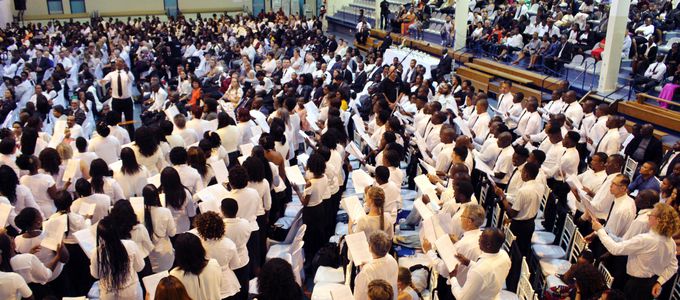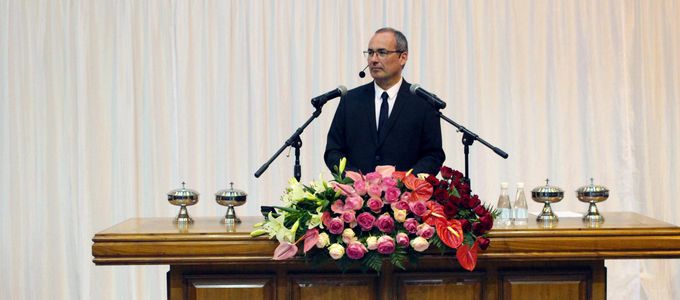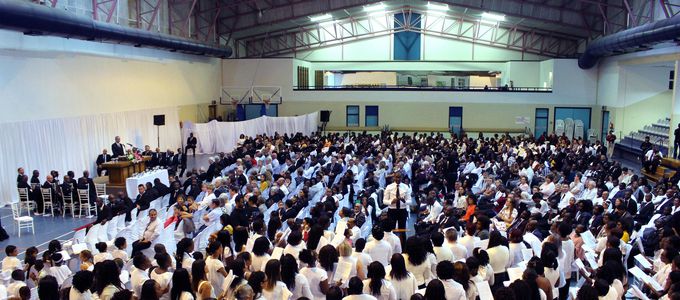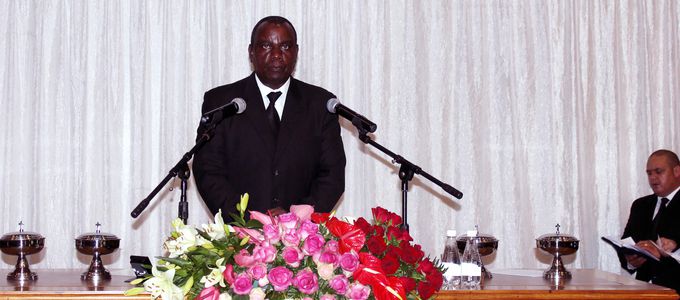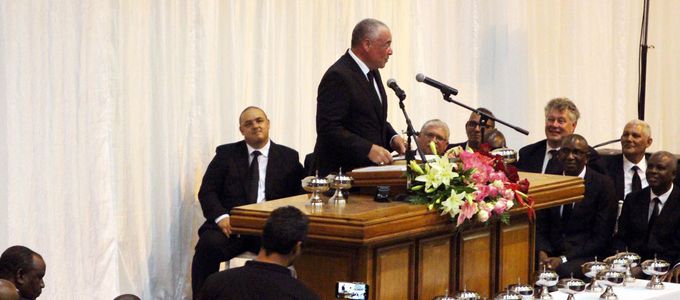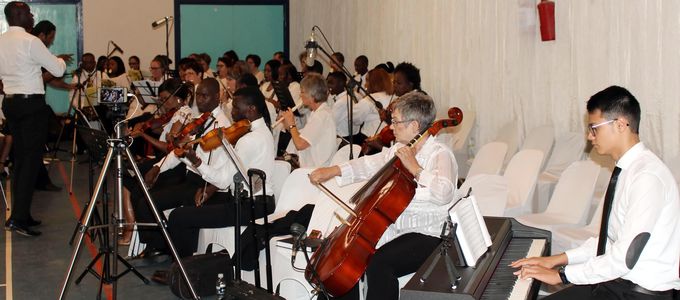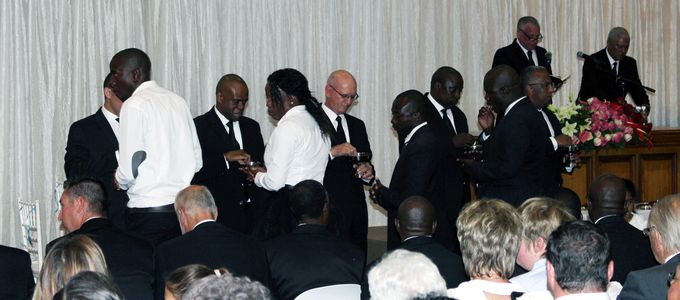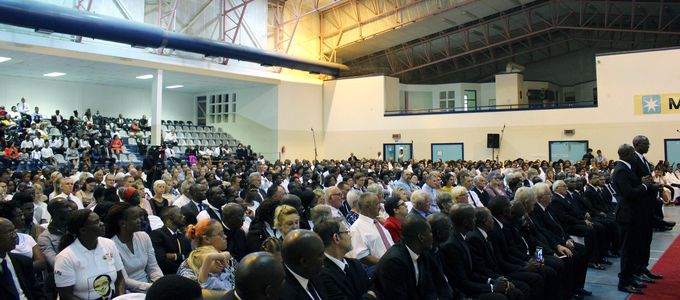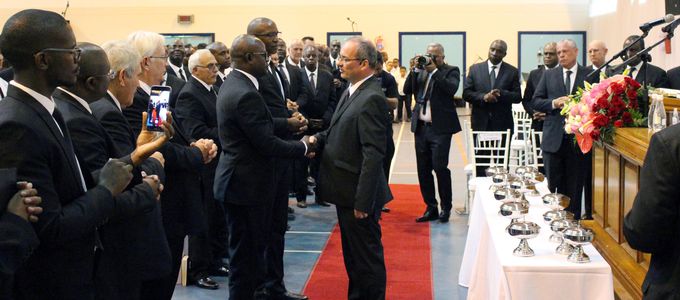
What do you mean: God is righteous, when things go so well for some and so terribly for others? Where some are elected and others are not? How does it all fit together? The answer is: “There is grace for all.”
“The Lord is righteous in all His ways, gracious in all His works.” This Bible text from Psalm 145: 17 comprised the basis of the divine service on 13 December in Walvis Bay in Namibia.
“I know many, many people who would not agree with that,” said Chief Apostle Jean-Luc Schneider as he explained a frequent reaction: “Look at the different conditions of life all around the world! How can you say that God is righteous? If God existed, He would not permit this.”
“Yes, we suffer from injustice, but evil was not created by God,” came the answer. “He created man with the freedom of choice, and sadly enough, man made the wrong decision and thus came under the domination of the evil one.”
One way for all
But God is gracious. He promised to send a Saviour, who would free mankind from the reign of evil. “He is righteous because He sent Jesus Christ to save all mankind . That is the righteousness of God: Christ died for all mankind, for each and every human being.”
This is the great plan of God: He wants to lead all human beings into His kingdom. For this He has established one way—and only this one: we must believe in Jesus Christ and follow Him. “This too is a sign of His righteousness: it is exactly the same way for all human beings.”
Looking into the hearts
Those who follow this path will continue to experience the righteousness of God, explained the Chief Apostle. “No one will be excluded from salvation. God will make sure—on earth today, and in the kingdom of peace in the future—that every human being has the opportunity to recognise Christ and to decide for Him.”
Whether a person truly believes in Christ is something that God not only measures by his or her words and deeds, however. “This is because whatever you are able to do and achieve depends on your nature, on the gifts you’ve received, but also on the place where you live, on your home history, on your condition of life.” That is why God searches the heart of each and every human being.
“God is a judge—a righteous judge—but a judge nonetheless,” emphasised the Chief Apostle. In the end, God will only accept those who believe in Jesus Christ and follow Him.
Elected to serve
“We are baptised with water and the Spirit, and we believe in our election.” But how does the idea of being a firstling fit together with the idea of righteousness for all? The answer lies in the reason for our election: it is not because of any personal merits, but rather in order to serve God—already today, but also in the kingdom of peace.
Therefore, being numbered among the firstfruits is more of an obligation than a special preference: “To whom much is given, much will also be expected. These are the words of Jesus Himself. He made this very clear.” But even if God expects more, “Don’t forget, whatever happens in your life, God is fair. He will provide you with everything you need to fulfil His will and to answer His call.”
In the end, all will receive the same
In the end, God will give all human beings who believe in Jesus the same reward, namely eternal glory in His kingdom. But isn’t that unfair, considering that some have done more than others? “No!” said Chief Apostle Schneider clearly: “Don’t forget that we are justified by grace, not by our merits. He gives all of us the same grace. “We have earned nothing, but we receive everything.”
His conclusion: “God wants to liberate all human beings from the evil one. Jesus Christ has died for all human beings, and will grant eternal life to all those who believe in Him. God has elected us in order to serve, and He will also make it possible for us to do so. Redemption far exceeds anything that we could ever earn.”







